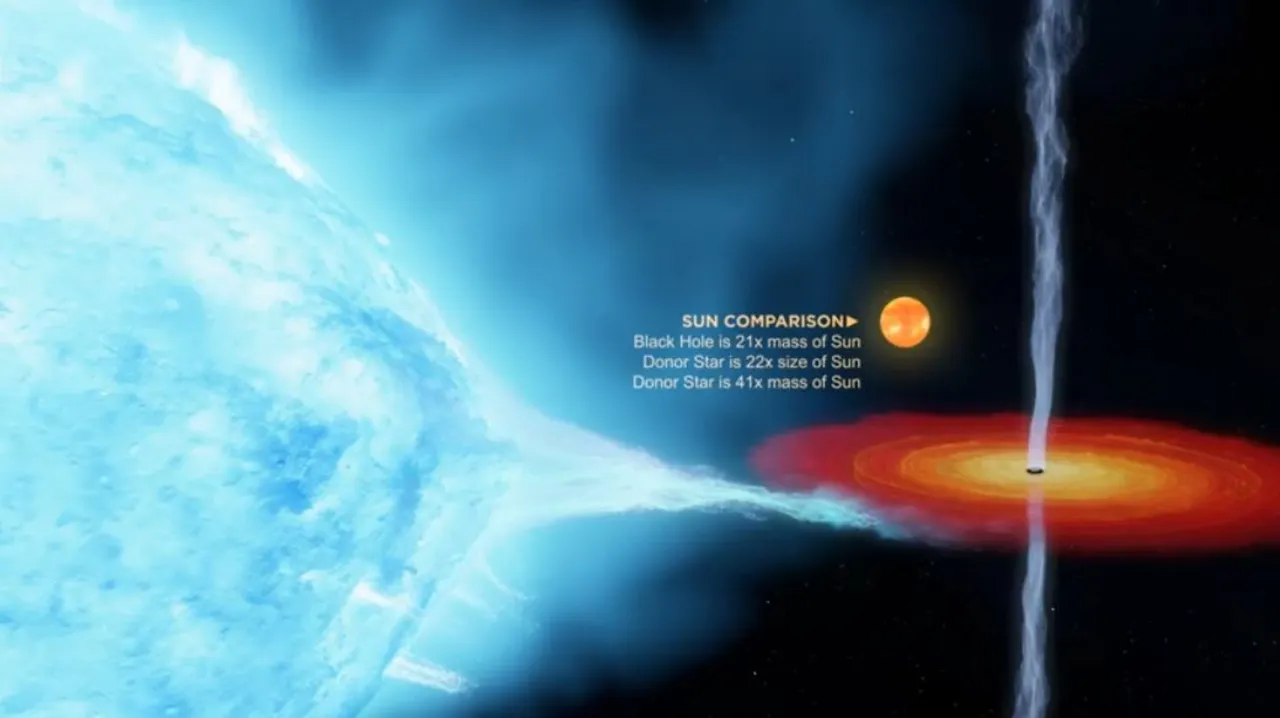Wie entstehen schwarze Löcher und wie massiv sind sie?

Unraveling the Mysteries of Black Holes: Exploring Their Formation and Mass
Black holes are some of the strangest objects in the universe. Mysterious and enigmatic, they continue to captivate the attention of physicists and astronomers around the world. But what exactly are black holes, and how do they form? Let’s take a closer look at these peculiar objects.
How Black Holes Form
Black holes form when large stars die. As the star runs out of fuel, it collapses under its own gravity and is compressed into a single point, known as a singularity. This singularity has an incredibly strong gravitational pull, so strong that not even light can escape it. This is why black holes appear as empty regions in space – the light from the singularity is unable to escape.
The formation of a black hole is not a sudden process. It takes millions of years for a star to collapse, and the gravitational pull of the singularity increases over time as the star continues to collapse. Eventually, the gravitational force becomes so strong that nothing, not even light, can escape.
How Massive Are Black Holes?
The mass of a black hole is determined by the amount of matter that has been compressed into the singularity. This matter can range from a few solar masses to billions of solar masses. In general, the more matter that has been compressed into the singularity, the more massive the black hole will be.
The size of a black hole is also determined by its mass. Smaller black holes will have smaller “event horizons” – the point at which even light can’t escape – while larger black holes will have larger event horizons. It is believed that the largest black holes in the universe have event horizons that span millions of kilometers.
The Mystery of Black Holes
Black holes are some of the most mysterious objects in the universe. Despite decades of research, we still don’t understand exactly how they form or how massive they can become. Some theories suggest that they could be portals to other universes, while others suggest that they could be the remnants of collapsed stars. The mystery of black holes continues to captivate scientists and the public alike.
The Dangers of Black Holes: How Close Are We to Being Swallowed Up?
Black holes are some of the most mysterious objects in our universe. They are incredibly dense, with gravity so strong that not even light can escape from their grasp. But how do black holes form, and how massive are they?
Black holes form when a large star runs out of fuel and can no longer generate nuclear energy. This leads to an inward collapse of the star's core, and eventually, an incredibly powerful gravitational force is created. This force is so strong that it traps any matter or radiation within its grasp. This means that anything that passes close to a black hole will be pulled in, never to escape again.
The size of a black hole is determined by its mass. If the mass is very large, the black hole will be correspondingly large, with a radius that can reach billions of kilometers. These massive black holes are known as supermassive black holes, and they are believed to exist at the centers of most galaxies.
The danger posed by black holes is that anything that passes too close can be pulled in. This includes stars, gas clouds, and even entire galaxies. This is why astronomers are constantly on the lookout for black holes, and why it is so important to understand how they form and how massive they can be.
Fortunately, our own Milky Way galaxy is not in any immediate danger of being swallowed up by a black hole. However, astronomers believe that there is a supermassive black hole at the center of our galaxy, and this means that anything that gets too close may be pulled in. This is why it is important to understand the potential dangers of black holes, as well as how they form and how massive they can be.
A Comprehensive Guide to Black Holes: Understanding Their Nature and Impact
A black hole is one of the most mysterious and powerful forces in the universe. It is a region of spacetime where the force of gravity is so strong that nothing, not even light, can escape its grasp. Black holes are formed when a massive star dies and its core collapses in on itself. This powerful phenomenon can have a major impact on the universe, and it is important to understand the nature and impact of black holes.
Black holes are incredibly dense objects, with a mass of up to several billion times that of our sun. They are so massive that even light cannot escape their gravitational pull. This means that they appear black in the night sky, and can only be observed through the way they interact with other objects.
The mass of a black hole is what causes it to have such a powerful gravitational pull. As matter and energy come close to a black hole, they are sucked in and compressed into a single point, known as a singularity. This singularity is the source of the immense gravity of a black hole.
The powerful gravitational field of a black hole can have a major impact on its surroundings. It can attract matter from other stars and galaxies, drawing them in and creating a powerful accretion disk. This accretion disk can produce powerful jets of radiation, which can be seen from far away.
Black holes can also have an effect on the larger universe. As matter falls into a black hole, it releases tremendous amounts of energy, in the form of gravitational waves. These waves can travel through space, carrying information about the nature of the black hole and its surroundings.
In addition to their gravitational impact, black holes can also have a major influence on the structure of galaxies. Their immense gravity can cause them to draw in matter from other galaxies, creating powerful tidal forces that can distort the shape of the galaxy. These distortions can have a major impact on the way galaxies evolve.
Understanding the nature and impact of black holes is essential to understanding the universe. They are incredibly powerful objects, with a major influence on the structure and evolution of galaxies. The more we learn about black holes, the better we can understand the universe and its workings.
